|
Two weeks ago I featured an article ‘Negative cashflow – the death for many construction companies’ where I discussed how negative cashflow can destroy a company. Then last week I wrote an article ‘How to improve cashflow on your projects - Part 1’. This article investigates how to improve cashflow on your construction projects further. More tips for improving cashflow on construction projects1. Track the progress of the valuation claim or invoice through the client’s office to ensure there aren’t any hold-ups and those required to authorise the payments are available. This could particularly be a factor over holiday periods. 2. Where possible negotiate for earlier payments and to get paid for materials which are on site but not built-in. 3. Get the client to release retainage money as soon as possible. Many contracts have cash retention held which could be up to 10% of the value of work done. The project team needs to understand what needs to be done to obtain the release of this retainage money. Often projects are completed 99%, even occupied by the client, yet because the contractor isn’t completed all the punch list items or contract documentation the retention money isn’t released. I’ve known construction projects drag on for several months waiting for the project team to complete all outstanding matters - all the while the client is holding the retention money which in some cases could be millions of dollars. Will your project be finished on Time? This checklist will help you. 4. Attend to defects and claim final retainage money as soon as the end of the defects liability period is reached. Usually the final retention money is only released after the completion of the defects liability period which could be three months, a year, or even longer after practical completion. Delaying practical completion delays the start of this period. Furthermore, contractors often forget to ask the client for their final inspection at the end of the defects liability period, or they take their time attending to defects which delays the release of retention money even further. Ensure you diarise when the defects liability period for your project ends. Then arrange to have the client inspect the facility, you complete any punch list items and then request the retention money be returned. 5. Sometimes clients may be amenable to replacing the retention money with a retention bond or to releasing part of the retention money on sectional completions. 6. Ensure construction materials and equipment are built into the project soon after arriving on the project. Often construction projects have large expensive items of equipment that the client only pays for when built in. But the contractor normally has to pay for the item in full once it leaves the factory or when it arrives on the construction project. In this case the project team should ensure the item is built in as soon as possible so the client can be invoiced. Also where possible try and ensure the item arrives ‘just-in-time’ so it doesn’t stand on the site longer than required. Where possible avoid arranging material deliveries for the end of the month (where the supplier will invoice in that same month), but rather at the start of the following month. Delaying a delivery by a couple of days could mean paying for it a month later. 7. Maximise the valuation claim. Sometimes monthly valuation claims are due say by the 25th of the month, which often means measurement and calculations of work completed is prepared by the 23rd. This means that 7 or 8 days of construction work isn’t included in the valuation. It’s often possible to negotiate with the client that an estimate is included in the valuation of the work up to the end of the month. Sometimes, the client only looks at the valuation claim at the end of the month so it may be possible to anyway add in an estimate of work that you are sure will be completed before the client verifies your claim. I generally, where possible, try and over claim my monthly valuations. Money sitting in our bank account is always better than sitting in the clients. The importance of maximising monthly valuations on your construction project 8. Try and negotiate payment terms with your suppliers and subcontractors that are similar to those that you have with your client. 9. Try and negotiate better payment terms when pricing and negotiating the construction project. There are steps that can be taken when preparing your quotation and negotiating the terms of the contract that can have a profound effect on your cash flow. I will discuss this next week. Improve cash flow. Implement these strategies when pricing your next project "If you decide to know the main principles of construction projects and companies this book is for you. Inside it you will find many practical experience of the author." (Reader on Amazon) Improve cashflow on your construction project today"A strong positive cashflow means your construction company can grow" Taking a few simple steps on your construction project can drastically impact your company’s cashflow. A strong positive cashflow means the company can grow, take on bigger construction projects, purchase new equipment, pay its suppliers and subcontractors on time and pay your salary. #constructionfinance #constructionmanagementtips #contractors Other useful articles: Construction project variations - have you included all the costs? The construction project manager’s financial duties Financial checks and controls on construction projects  (Paul Netscher is the author of the acclaimed books ‘Successful Construction Project Management: The Practical Guide’ [a required text for Bachelor of Construction Management at some universities] and ‘Building a Successful Construction Company: The Practical Guide’. Both books are available in paperback and e-book from Amazon and other retail outlets. This article is adapted from information included ‘Building a Successful Construction Company’. To find out more about how Paul Netscher can do for your company Read) © 2022 This article is not to be reproduced for commercial purposes without written permission from the author.
3 Comments
All over the world the season is changing. The northern hemisphere is going into summer and the southern hemisphere into winter. Some regions are going into a time of heavy rainfall, others may experience cold and even snow, some will experience heat, while others could face the threat of storms which could bring hail, wind or lightening.
So is your construction project ready for the changing season? In the northern hemisphere many are packing away their cold gear after a prolonged winter, which has often hampered production, and they are now looking forward to some sunshine. But are you prepared to make the most of the good weather before the season inevitably, and often too soon, changes again? So why do we need to be thinking about the changing seasons? Safety Changed weather conditions can have a big influence on safety. Heat brings the risk of heat exhaustion and bush fires. Dry conditions increase the risk of bush fires, dust and a shortage of water for construction. Wet conditions pose flood risks, slippery conditions on walkways and roads. It can also make project access roads impassable and ground conditions could become soft, even resulting in cranes toppling should their outriggers settle in the softer ground. Sides of excavations may become unstable and buildings could become undermined. Wind creates dust, flying debris, unsafe lifting conditions for cranes and the risk of poorly stacked materials being blown over. Partly completed structures could be toppled in high winds. I’ve even had people blown off their feet into excavations or off access platforms. Cranes can be blown over. Storms bring lightening, heavy rain and high winds which cause damage to buildings and injury to people. The changing season could also bring a decrease in the hours of daylight which could reduce construction productivity and cause safety concerns. Even the changed position of the setting sun could make driving conditions unsafe on some site access roads. Production During poor weather production may be slowed or even have to stop for safety reasons. Construction materials may not be lifted in high winds. Workers have to take more frequent rest breaks when working in extreme temperatures and their movement could be hampered by cold weather or rain clothes. Concrete could take longer to set and reach sufficient strength to strip forms, while in hot conditions there could be the risk of cold joints forming. Equally important is to review procedures and set new targets when weather conditions improve. Often people become used to doing tasks in a certain manner, taking numerous breaks as required by the weather conditions and achieving certain targets. When weather conditions improve they continue to do the tasks as done to suit poor weather conditions without modifying their actions to achieve the better productivity they should in the good weather conditions. Damage to the work Stormwater can flood excavations, damaging equipment, cause excavations to collapse and generally delay work. Rain can penetrate partly completed buildings damaging finishes and equipment. Dust can enter equipment and damage it. High winds can tear away objects and materials not fully installed. Environmental Stormwater flowing from the construction site can erode away neighbouring properties or deposit silt or contaminated material from your project site onto neighbouring properties. Dust created by the construction work could be blown onto neighbouring property, causing damage, irritation and a safety hazard. Quality Heat, wind and cold all impact curing of concrete. Some materials can be damaged when exposed to extreme heat or cold, or if they get wet or covered in dirt. So what can we do to prepare our projects for the new season?
Over and above the changing seasons there seem to be more freak weather events. How prepared is your project for sudden and unexpected ferocious weather events? Well we can’t be prepared for all of these, however, it may be worth thinking about them, and at least formulating an emergency plan in case your project is about to be hit by a freak storm. Is your construction project ready for the new season’s opportunities and challenges? Other useful articles by the author: The importance of planning your project Understanding the real cost of delays on your project How useful is your construction schedule on your project Will your construction project be completed on schedule? (Written by Paul Netscher the author of the acclaimed books ‘Successful Construction Project Management: The Practical Guide’ and ‘Building a Successful Construction Company: The Practical Guide’. Both books are available in paperback and e-book from Amazon and other retail outlets. This article is adapted from information included in these books. To read more about Paul Netscher go to, or find out how Paul Netscher can help you go to ) © 2015 This article is not to be reproduced for commercial purposes without written permission from the author. "Failure to manage cashflow properly could lead to the demise of the company." Cashflow is the life blood of every construction company. Failure to manage cashflow properly could lead to the demise of the company. Last week in my article ‘Negative cash flow – the death for many construction companies’ I discussed how negative cash flow can destroy a company. This article explores this topic further and discusses what steps Company Managers and Project Managers can implement to improve cash flow. Case study 1: A few years ago I became involved in a project that had done ten million dollars’ worth of work on a cost recovery basis and yet had only invoiced for half a million dollars! Hard to believe! Not many construction companies can survive that amount of negative cashflow. To make matters worse none of the work had been signed off or agreed and many records were missing. It took months to find and agree the records and then invoice the work - (in all of this who knows what records were lost). Case study 2: Another project we built had a value of eight hundred thousand dollars. However, from the outset there were delays and scope changes. The value of the construction project soon doubled. Although we submitted our variation claims (change orders) timeously the client refused to acknowledge or pay them. After four months our costs were over one million six hundred thousand dollar and yet the client had only paid us eight hundred thousand dollars. Only when we proceeded down the legal path did the client eventually agree, settle and pay most of our claims. In this time our company had to finance this deficit which was a big drain on our cashflow which prevented us purchasing new construction equipment which we desperately needed for our other projects. Fortunately we did have the cash to cover the negative cashflow which could have destroyed many construction companies. "not invoicing for work done and not settling variation claims can quickly get a construction company into cashflow trouble." These examples illustrate how not invoicing for work done and not settling variation claims can quickly get a construction company into cashflow trouble. So what can we do to improve the cash flow on our construction projects? How to improve cashflow on construction projects Here are a few easy solutions that every construction project manager can take to improve cashflow for their construction project and company 1. Ensure that valuation claims are submitted on time, to the correct person, in the right format and with the required supporting documents. I’ve had many progress claims rejected because the format wasn’t as per the client’s requirements. It’s always a good idea at the start of the contract to clarify when the interim and final valuation claim must be submitted, to whom and in what format. 2. Make sure all work completed has been included and claimed. The person preparing the interim progress valuation or final valuation should be familiar with the construction project as well as the project documentation. The importance of maximising monthly valuations on your construction project 3. Submit and agree variation claims (change orders) as soon as possible so they can be included in the monthly progress valuations. Construction project variations – have you included all your costs? "Continually update the client on the expected final contract value" 4. If the value of the finished construction project is going to exceed the original project contract value ensure that the client has the funds to pay. Sometimes the client has to go through a long process to release additional funds for the project which could take months. I’ve worked for large reputable clients where it could take three or more months to release additional funds from within the organisation to pay the increased project costs. Three months when we weren’t paid. Continually update the client on the expected final contract value so if necessary they can take the required actions early. 5. Ensure that the client has issued proper site instructions and contract variations (change orders) for the additional works so there are no delays with payment. 6. Ensure payment milestones are fully achieved. Some projects are only paid when a milestone is achieved. If the milestone isn’t achieved – maybe because documentation hasn’t been submitted or testing completed there may be no payment forthcoming. The project team needs to understand their contract documentation and ensure they fulfil all obligations for the milestone to enable payment to be made. 7. Where payment is measured against the construction schedule ensure the schedule is updated correctly. Some projects pay in accordance with percentages complete on the project schedule. If the construction schedule isn’t updated correctly the contractor may end up under claiming their monthly valuation. The Good, the Bad, and the Ugly of Construction Project Schedules "I found that referring to this book was like having my own mentor on tap. Excellent." (Reader Amazon) Cashflow is critical for construction companiesNegative cashflow can bankrupt companies. It can certainly cause problems with paying subcontractors and suppliers. It could even impact you being paid on time. A construction company struggling to pay suppliers and subcontractors will make the life of a construction manager more difficult. It's important construction project managers ensure that there valuation claims are submitted on time and include all the completed work, with the supporting documentation. Project managers must take a keen interests in their project's finances. The construction project manager’s financial duties Read part 2 next week for more actions you can take to improve the cash flow on your project. How to improve cash flow on your projects - Part 2 #constructionfinance #constructionmanagement #contractorscashflow Other useful articles by the author include: What you need to know to close-out your construction project successfully Financial checks and controls on construction projects  (Paul Netscher is the author of the acclaimed books ‘Successful Construction Project Management: The Practical Guide’ [a required text for Bachelor of Construction Management at some universities] and ‘Building a Successful Construction Company: The Practical Guide’. Both books are available in paperback and e-book from Amazon and other retail outlets. This article is adapted from information included ‘Building a Successful Construction Company’. To find out more about how Paul Netscher can do for your company Read) "This book is fun to read and full of examples of what to be aware of with project management." (Reader on Amazon) © 2022 This article is not to be reproduced for commercial purposes without written permission from the author.
"Contractors need to understand their clients. Who they are and what their expectations are" In most business it’s important to understand your client or customer. However, in construction it seems to be more important, and could make or break your construction project, or even your construction business! Many construction companies are purely focussed on their construction projects and don’t actually understand their client. Construction companies and Project Managers need to be more sensitive to their clients, understanding who they are and what’s important to them. Not only can this assist construction companies avoid projects that are destined to go bad, but it can also make winning a good project easier, and ensure the execution of the construction project proceeds more smoothly. So let’s consider how understanding your client can make your construction company more successful. #constructionprojects #constructioncompany Understanding your client when pricing the construction projectBefore pricing a construction project: When pricing a project construction companies should understand: 1. Does the client have money to pay for the work? 2. Do they have a reputation for construction projects which end in disputes and litigation? 3. Do they pay their contractors fairly and on time? 4. Do they engage in dishonest practices "You don’t want to be working on a project where you might not be paid or with a client that engages in dishonest practices" You don’t want to be working on a construction project where you might not be paid or with a client that engages in dishonest practices which might have implications for the project or your business. what makes a good client? Preparing your price submission (tender or quotation): By understanding what the client is looking for you can ensure that you are capable of giving them what they are asking for, and also ensure you emphasise in your price submission or quotation how you will deliver the construction project in such a way that their needs and expectations will be met. For instance, some clients may be particularly concerned about the safety of the construction works. By emphasising your past safety achievements and highlighting how you will deliver their project safely, it could be possible for your price submission to stand out from your competitors. Steps to help you win your next construction project Some clients may need a particular part of the construction project finished earlier. By understanding these requirements you may be able to structure your construction schedule/program in such a manner as to ensure their requirements are met and emphasise this in your presentation. Some of this is written in the pricing documentation – but so are many other things. It is about understanding what really is most important to your client, so you ensure you tell them how you will deliver this "if you don’t believe you can meet the client’s expectations on the project then avoid pricing it. Why get into trouble if you can avoid it." Of course if you don’t believe you can meet the client’s expectations on the construction project then avoid pricing it. Why get into trouble if you can avoid it. During the negotiation phase: I have won construction projects from 2nd or 3rd place (with other contractors being cheaper, and perhaps even preferred) by demonstrating during the project price negotiation phase that we understand the client’s construction project and concerns. Remember it is their project, so treat any concerns they have seriously. It doesn’t make a good impression to criticise their team, design or construction project. By understanding the client’s needs also means you can take the right team to the negotiations. For instance if safety is the priority take your proposed project safety manager as well as the head of your safety department. With quality, safety and scheduling there is almost a special language and relationship that these fraternities seem to have with each other, and if you can find the right bond the battle is almost won. Construction bid clarification and negotiation meetings Understanding your client when planning the construction projectWhen selecting the team to build the project it pays to understand the client. If the client sees safety as the most important priority then it’s important to select a Project Manager that takes safety seriously. A PM who isn’t safety conscious will face an uphill battle with a client that is focussed on safety. (of course safety is important irrespective of the client's requirements.) Knowing the client and their team may also mean you can select a Project Manager who is more likely to get on with them. Unfortunately some problems on construction sites are caused, or exacerbated, by a clash of personalities. Occasionally there are clients who are bigoted, or may discriminate against certain people – why start a project with a problem if it can be avoided. It will be unpleasant for your project manager and it won’t help the project. What you should consider when staffing your project #constructionplanning #constructionmanagementtips "If you know the client and their team is weak you may need a stronger construction team," If you know the client and their team is weak you may need a stronger construction team, as well as a team with good contractual knowledge so they can lodge claims and variations that may arise. Knowing your client when managing your construction projectRemember to ensure your project manager understands the client’s needs so they can deliver them. It’s pointless the company has done all the hard work to impress the client at the pricing stage, only for the PM not to get the message. Misunderstanding cultural differences can lead to problems and misunderstandings on construction projects. You don’t want to cause offence by an innocuous remark which the client takes the wrong way, which then sours the relationship "many problems on construction projects could be avoided with a better understanding of your client and their team." The best negotiators have an instinct for the personal dimension. Build relationships with your client, learn about them, understand their strengths and their weaknesses and use these to your company’s advantage. So many problems on construction projects could be avoided with a better understanding of your client and their team. How clients accidentally sabotage construction projects, and how you can stop it Some clients can be particularly pedantic regarding some minor things that can seem inconsequential to the contractor. These may be how the client wants a report done, when they want things presented or what they particularly look for when they walk the construction works. Often these have only minor costs, yet some construction project managers and contractors will fight and resist the client, often leading to an unhappy client with consequential problems. Yet, satisfying these requests can make the relationship much easier. I don’t mean give in to every demand or be bullied, rather pick your battles, which you can do more affectively if you understand your client. "You don't want to work with a client who changes everyday." Of course there are some clients that you may never understand. They change their mind on a daily basis. One day they are friendly, the next, whatever you do is wrong. Well do you really want to work for a client like that? "What I personally liked about this book were the case studies; they were great. Also, the proper explanation of every thing talked about." Their are benefits all through the construction process to knowing and understanding your clients. From pricing the construction project, planning the project, managing the project, negotiating variation claims or change orders, through to completing the project. Failure to understand your client could cause contractors to work for the wrong client, one that pays late, or perhaps not at all. A disorganised client will delay and disrupt the construction project. Failure to understand your client may even delay the hand over of the project, or even lead to problems after the project is completed. Contractors must research their clients. They need to talk to them and develop relationships. Successful construction projects are built on sound relationships between the contractor and the client and their teams. They are built on mutual respect and understanding. Contractors must understand their clientsOther useful articles Construction is a people business. Employ the right people. How do construction companies keep a good client? 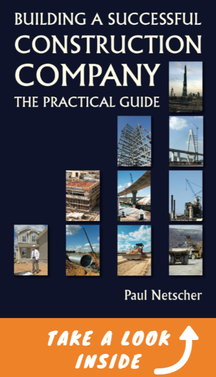 (Paul Netscher is the author of the acclaimed books ‘Successful Construction Project Management: The Practical Guide’ [a required text for Bachelor of Construction Management at some universities] and ‘Building a Successful Construction Company: The Practical Guide’. Both books are available in paperback and e-book from Amazon and other retail outlets. This article is adapted from information included in these books.) © 2022 This article is not to be reproduced for commercial purposes without written permission from the author. "Even a profitable construction project can cause a company financial problems if the cashflow is negative." Negative cashflow probably causes more construction companies to run into financial trouble (leading to their closure) than any other cause. Even a profitable construction project can cause a company financial problems if the cashflow is negative. Negative cashflow is when the construction company is paying money to suppliers, equipment hire companies and subcontractors, or in wages and salaries, before the client has paid for the work that has been completed. "most construction projects are usually cash negative" Why are construction projects cash negativeUnfortunately most construction projects are usually cash negative to some extent. Many clients hold 10% cash retention (retainage money) until the end of the project when this is reduced by half. Consequently if the construction project is priced at anything less than a 10% profit the project is usually automatically cash negative until the end of the project. In addition, most clients only pay the contractor thirty days after the contractor submits an invoice. These invoices are normally submitted at the end of each month. Many contractors pay their workers fortnightly or in some cases weekly. This means the construction company could have paid out up to seven weeks of wages before the client pays for the work that these personnel have completed. Smaller contractors sometimes have to pay suppliers before they will release materials. "some clients habitually pay progress claims late or not in full." There are, however, a number of other factors that make the cashflow situation even worse. Many construction projects have payment terms longer than thirty days. In addition some clients habitually pay progress claims late or not in full. Of course, the ultimate knockout blow for many construction companies is when clients don’t pay at all. This could be a result of the client disputing the value of work, defaulting on the contract or going into liquidation. what makes a good client? Yet, even with the odds stacked against construction companies, they often make their cashflow situations worse by submitting their progress valuations late, accepting payments late or not claiming fully for completed work. "Step-by-step it takes the reader through the journey of claims writing, carefully considering and illustrating every element and how it needs to be presented."(Reader on Amazon) How can contractors improve cashflowTo improve the cashflow situation construction companies must submit their monthly progress valuations on or before the due date. Some clients only run progress payments on a particular day in the week, or month, so missing a submission date could cause the client to delay payment by up to a month. The valuations must be submitted in the required format and with the required supporting documentation since many clients will use any excuse to delay or reject a monthly claim. Tips For Construction Contractors to Get Paid On-Time It’s important to track the progress of the payment through the client’s payment system. With major clients there may be several people that check and approve the valuation and payment. Sometimes, the process is disrupted when someone is absent, or the claim simply gets ‘lost’. I’ve had more than one client who consistently paid progress claims late, always with some excuse about our valuation being late, the claim being incorrect (either arithmetic errors, insufficient supporting documentation or disagreement with our progress) and people in the approval process being absent. Of course many of these problems were only reported to us when the payment was due, despite the client having had the claim for thirty days. The CONSTRUCTION project MANAGER'S financial duties "It’s important Project Managers understand what the payment milestones entail and ensure they are met." Some contracts are structured such that payments are only made when the contractor achieves particular milestones. It’s important that Project Managers understand what these milestones entail and ensure they are met. It’s obviously pointless to achieve 99% completion if payment is only made for 100%. Often contractors take several weeks to complete the last few items (which may just be completing documentation), which delays payment. the importance of maximising monthly valuations on your construction project #constructionfinanace #constructioncashflow #constructionmanagement Do not let negative cashflow destroy your construction companyDo not let negative cashflow destroy your company. Project managers can take an active role in ensuring their construction project is not cashflow negative, and if it is that this is minimised. In forth coming articles I’ll suggest other steps that construction companies can implement to improve to improve their cash flow. How to improve cash flow on your construction projects - Part 1 and How to improve cash flow on your projects - Part 2 and Improve cash flow. Implement these strategies when pricing your next project  (Paul Netscher is the author of the acclaimed books ‘Successful Construction Project Management: The Practical Guide’ [a required text for Bachelor of Construction Management at some universities] and ‘Building a Successful Construction Company: The Practical Guide’. Both books are available in paperback and e-book from Amazon and other retail outlets. This article is adapted from information included ‘Building a Successful Construction Company’. To find out more about how Paul Netscher can do for your company Read) © 2022 This article is not to be reproduced for commercial purposes without written permission from the author. Other useful articles by the author include:
Construction project variations – have you included all your costs? What you need to know to close-out your construction project successfully The construction project manager’s financial duties The importance of maximising monthly valuations on your construction project Financial checks and controls on construction projects Thank you for reading this article. I hope it was useful. Please add your comments and share it with others. What construction companies should do to maintain and develop a good reputation. As discussed in my previous article ‘Why construction companies should be concerned about their reputation’, it’s important for construction companies to have a good reputation. So what impacts a company’s reputation? What impacts a contractor's reputationBelow are some important points that impact a contractor's reputation "Clients will often pay a premium to employ construction companies they know will deliver their construction project on time" 1. Delivering construction projects on time Clients will often pay a premium to employ construction companies they know will deliver their construction project on time. For many clients time is money. The sooner a project is completed and they can start operating the facility the sooner they can earn money, or the sooner they can move into a new house or office so they can stop renting their current property. #constructionschedule Will your construction project be completed on time? 2. Do not over-promise and under-deliver I’ve had managers and Project Managers who continually over-promised and have committed to dates and requirements which were impossible to meet. When these dates weren’t met, or requirements weren’t delivered, the client became unhappy, disillusioned with the contractor and eventually didn’t believe anything the Project Manager said. "Mistakes happen on construction projects. It's how you deal with the issue that clients remember" 3. Acknowledge and rectify your mistakes Unfortunately mistakes happen on projects. As much as you’ve planned and staffed your construction project properly, and done everything correctly, problems will and do occur. When a problem arises the construction company is often judged on how the problem is resolved, rather than there being a problem in the first place. 4. Honesty and integrity The construction company and its personnel must be seen to be honest. This is more than just not over-charging the client. It’s about conducting yourself and the business beyond reproach. It’s also how you deal with suppliers, subcontractors and your employees. Ethics in Construction. What are unethical behaviours? Why should we care? 5. Delivering a quality project Quality workmanship and materials are essential, not only to prevent the company from incurring additional costs, but also so that the company has a reputation for delivering quality projects. Many clients are prepared to pay a premium to obtain a quality product and efficient service. #constructionquality How important is quality on your project "Don’t underestimate the poor publicity a company gets when there’s a serious accident on one of their construction projects." 6. A safe construction project It’s essential that construction companies take safety seriously. I’ve known contractors being barred from working for certain clients because of their poor safety record. Some clients pay their managers bonuses which depend on their safety record and the safety record on their projects. Therefore these managers won’t tolerate unacceptable safety practices from their contractors because it will adversely impact their bonus. In addition, accidents create work. Incidents have to be investigated, reports written and explanations provided to management. Nobody likes additional work — especially the client’s team! Serious accidents may even result in people losing their jobs. Consequently most clients will go out of their way to ensure that the construction company they pick has a good safety record. Also, don’t underestimate the poor publicity a company gets when there’s a serious accident on one of their construction projects. #constructionsafety How poor safety costs your construction company money "Don't get a reputation for being difficult to reach, or unresponsive to complaints." 7. Responsive to clients Construction companies need to be responsive to clients’ demands. I don’t mean do work without charge, but rather try and accommodate the client’s changes and additions where possible. The nature of most projects is that the client will change the schedule, their milestones, as well altering structures, buildings and finishes. These changes can often be frustrating and take up the contractor’s management time. It’s frequently easier to say no to the client since the additional variations may barely cover the cost of doing the work. But, by always saying no the contractor will quickly get a reputation of being uncooperative. Being responsive also means returning the client’s phone messages, making yourself available for meetings, responding to queries promptly and submitting prices and revised schedules on time. 8. A Professional contractor Always be professional and courteous in your dealings with the client. It’s easy to say things in the heat of the moment which could upset clients. Some clients can be unforgiving and bear a grudge for years, jeopardising the chances of winning work from them. Professionalism also extends to how you dress, that you’re polite and respectful, appear organised, and arrive at meetings on time and prepared. It includes the way you are seen to treat your employees, suppliers, and subcontractors, and generally carry out business 9. Service after the project is completed Unfortunately a construction project doesn’t always end when the contractor hands over the keys to the client and moves off site. Most contracts have a warranty period during which the construction company is responsible to repair defects due to defective workmanship. In fact, in many countries when new structures are build the contractor may even be responsible for defects for several years (five, ten, or longer) How Do You Deal With Customer Complaints? It will impact your construction company if it's done poorly! "A construction project does not end when the client gets the keys." "Will you meet your client's expectations? Well you will not if they are impossible, or you do not understand them!" 10. Meeting the client’s expectations It’s important that the contractor is able to meet the client’s expectations. This means that they need to understand what these are, and furthermore ensure that they are reasonable and that the contractor can deliver on them. However, it may be necessary to discuss these expectations with the client, ensuring you both have the same understanding of what the finished product will look like and what it will cost. In construction it’s important to know your clients. It could save you. "What I personally liked about this book were the case studies; they were great. Also, the proper explanation of every thing talked about." (Reader on Amazon) A Good reputation is essential for contractorsIt’s important for construction companies to build and protect their reputation. A good reputation will help you win more projects. As important is to ensure that your Project Managers and other employees understand how important a good reputation is to the business and what impact their actions have on this reputation. Thank you for reading this article. I hope you found it useful. Please add your comments to share your knowledge and experience. Share the article so your connections can also view the article. Other useful and relevant articles by Paul Netscher: What you need to close out your construction project successfully. Who is responsible for safety on your project 10 Reasons why a construction schedule is useful.  (Paul Netscher is the author of the acclaimed books ‘Successful Construction Project Management: The Practical Guide’ [a required text for Bachelor of Construction Management at some universities] and ‘Building a Successful Construction Company: The Practical Guide’. Both books are available in paperback and e-book from Amazon and other retail outlets. This article is adapted from information included in these books.) © 2022 This article is not to be reproduced for commercial purposes without written permission from the author.
A recent TV show featured a program on glass panels that shattered with an explosive sound without apparent reason. View the program for more information. Although the blame was pointed at faulty imported glass it could also be due to poor installation or other reasons. Obviously the failure of the glass is dangerous, bad for reputation, is costly to replace and is inconvenient for clients while they can’t use the damaged facility.
The program is a timely reminder that construction companies are responsible for the quality of the construction materials they use, and that products incorporated into the project must comply with the client’s specifications as well as the prevailing legislation in the country where the project is situated. Installation of these products should be done by professionals in accordance with these specifications. Construction companies and clients are always seeking ways to construct projects at the lowest possible cost. Often the easiest way to lower costs is to use cheaper construction materials or the cheapest subcontractors. But there are sometimes inherent dangers in this. A previous post; ‘Is the cheapest really the cheapest’ highlighted steps to be implemented when adjudicating quotations or tenders to ensure that construction companies get value for what they are paying. Procuring construction materials from foreign suppliers We are living in a globalised world which has many advantages, allowing for cheaper or more innovative products to be imported from foreign suppliers. However, there are some important things to consider: 1. the items must comply with the project’s standards and specifications (other countries use different standards) 2. the items should be compatible with local products 3. spare parts should be readily available 4. warranties and guarantees must be valid in the project’s country as well as qualified people available to repair and service the product 5. there may be additional costs for the importation of the items, such as additional taxes and import duties 6. include the transport costs into the overall cost 7. there could be additional costs for staff to visit the factory, to ensure the quality standards are met has been taken into account Consideration may also have to be given to the stability of the foreign country, since disruption to the manufacturing process (due to strikes, unrest and war) will probably not be grounds for an extension of time claim. Source of construction materials – environmental, health, safety and legal considerations Even when procuring from local suppliers it may be pertinent to conduct some investigations. Consideration must be given to the source of the materials and the manufacturing process. Products must be manufactured using materials that will not cause a safety or environmental hazard when being worked with, during the life of the facility, or even when the facility is finally demolished, since these could result in costly legal problems for the contractor. The construction company should also ensure that materials are not procured from manufactures who are performing an illegal operation, or suppliers that are operating in an unsafe environment or not paying or treating their workers according to the required laws and standards. Not only can this be awkward for the contractor should it be exposed in the media, but it could result in the manufacturer being closed down, thereby affecting the supply of the materials. In addition, the contractor has an ethical duty to ensure the project is not contributing and supporting unlawful practices. It’s advisable that major manufacturers and suppliers are visited before the order is placed to ascertain that the facilities are adequate to produce the quantity of product, to the required standard and schedule, and that the facilities are not obviously violating any rules and standards. Thank you for reading this article. If you found it useful and think others in your community may find it useful please comment, like or share it. Please connect or follow me on LinkedIn or subscribe to the RSS feed to receive similar articles. (Paul Netscher is the author of the acclaimed books ‘Successful Construction Project Management: The Practical Guide’ (Read more) and ‘Building a Successful Construction Company: The Practical Guide’ (Read more). Both books are available in paperback and e-book from Amazon and other retail outlets. This article is adapted from information included in these books.) "Most people remember faults and very few seem to remember good work and successful projects." Contractors are only as good as their last mistake! Unfortunately most people remember the faults and very few seem to remember the good work and successful successful projects. When asked which restaurants gave you good service or scrumptious food you’ll probably have to think, but if you are asked which restaurant gave you bad service or poor food, you’ll probably recall the name instantaneously, even remembering the date and who you were with at the time. I was fortunate to go on a great train trip recently. What do I remember most about the journey – well the slow meal time service? Sad but true. The good parts of the trip were over-shadowed by the poor service. Construction is much the same and clients will remember errors long after they’ve been remedied. Some can be very unforgiving. Even if your price is the cheapest but you have a poor reputation (which may even be undeserved), you will not be awarded the project "One mistake can undo thousands of hours of hard work." One mistake can undo thousands of hours of hard work. That error may be caused by you or one of your employees. Incidents that can affect a construction company’s reputation include poor quality, ill-disciplined staff, aggressive behaviour when settling claims and variations, safety incidents, environmental accidents and not delivering a project on time. Even incidents that you consider trivial can be problematic for some clients, since they may view things differently, and have different priorities and agendas. The true costs of poor quality construction Furthermore, clients talk to each other and word quickly spreads that a particular contractor is problematic. #constructionmanagement #constructionquality #contractors "Don’t underestimate the bad publicity that can stem from an accident on your project, or an environmental issue" Don’t underestimate the bad publicity that can stem from an accident on your project, an environmental issue, damage to public services or surrounding properties, questions over possible fraudulent activities, disputes and legal proceedings with clients, poor quality workmanship or unseemly behaviour from your workers. Bad news travels fast and the media loves a sensational story. Unfortunately most clients will keep away from contractors who make the press for the wrong reasons. Why should we take construction safety seriously? But even neighbours or potential clients that walk past your project site quickly become aware of a disorganised or poorly managed project. Those potential clients will be turned off by your construction company and will take their construction projects elsewhere. People talk, and even clients who haven’t witnessed a contractor’s shoddy performance often get to hear about it (sometimes even an embellished version, which may blow the incident up even further). How Social Media Impacts Your Construction Company "Reputation is a team effort and everyone needs to understand how important it is for them to portray the company in a good light" It’s important that everyone in your team understand the importance of delivering a quality construction project on time without safety, environmental or disciplinary breaches. Reputation is a team effort and everyone needs to understand how important it is for them to portray the company in a good light, maintaining the company’s fine reputation in everything they do. Construction is a people business. Employ the right people. If your construction company has a good reputation clients will actively seek you out to price their project, maybe even negotiating it only with your company. In the past, I have often been awarded construction projects even though we didn’t have the lowest price. Clients wanted us to do their work because they knew we would deliver a quality project, safely and on time, with minimal fuss. 12 Tactics to Win More Construction Projects at The Right Price How has having a good reputation impacted your business? What incidents negatively impacted your company? Are all your employees committed to fostering a positive image for your company and do they understand how important it is? Other relevant and useful articles by the author include: Will your construction project be completed on schedule? What you need to know to close-out your construction project successfully. Who is responsible for safety on your project?  (Paul Netscher is the author of the acclaimed books ‘Successful Construction Project Management: The Practical Guide’ [a required text for Bachelor of Construction Management at some universities] and ‘Building a Successful Construction Company: The Practical Guide’. Both books are available in paperback and e-book from Amazon and other retail outlets. This article is adapted from information included in these books. To read more Go To) "Terrific book with lots of practical information. I like the checklists at the end of each chapter." (Reader Amazon) © 2022 This article is not to be reproduced for commercial purposes without written permission from the author.
Last week I asked the question what you do when your project is losing money and how important it is to find the correct reasons for the loss so that appropriate action can be taken to stem the losses and hopefully recover money already lost. (Read this article). This week I’ll explore some reasons why projects lose money. #constructionmanagement #constructionprofits #contractors Reasons why construction projects loose money"There is often more than 1 reason why a construction project is losing money" There are many reasons that cause projects to lose money, and often more than one for a particular loss. Some reasons may be: 1. There are too many people. The work area may be congested or people standing idle 2. Inadequate, weak or insufficient supervision. Materials may arrive late, or workers are standing waiting for instruction or allowed to take lengthy breaks. Supervisors don’t have the necessary skills to manage and motivate their teams or the knowledge to ensure tasks are carried out correctly Daily planning of construction projects 3. The wrong mix of trades and skills. For instance workers may be standing waiting for others to erect access scaffolding, or maybe there are too many general workers and insufficient craftspeople. 4. Low worker morale resulting in poor productivity 5. Poor discipline and time-keeping resulting in low productivity and lost time. How poor labour productivity impacts the success of your project. 6. Under qualified workers resulting in poor quality or low productivity. Skilled workers can usually perform tasks more quickly and with less waste. Are you employing the right people on your construction project? 7. Poor safety resulting in accidents. Why should we take construction safety seriously? 8. Too much equipment or the inefficient utilisation of equipment. Also the poor scheduling of servicing and refuelling which interrupts work cycles. The impact of poor equipment productivity on construction projects 9. The wrong type of equipment for example large excavators being used in congested areas to dig small trenches, or small excavators loading large trucks. 10. Equipment that continually breaks down, resulting in workers and other machines standing idle waiting for them to be repaired. The Alarming Truth about Using Old Construction Equipment 11. A shortage of materials, which delays work and results in special trips and additional costs to get the missing materials and delays the work Don’t run short of materials on your construction project 12. Defective materials which results in delays while material of the right quality is procured as well as additional costs to replace the defective material. 13. The project is poorly planned and managed. 15. Subcontractors not performing as they should, delaying follow on trades. Managing your subcontractors. Ensuring your project is successful. 16. Poor workmanship resulting in work having to be redone. Lack of appropriate quality systems or not enforcing the quality standards. How important is quality on your project 17. Theft of materials and equipment. Corruption, Fraud and Theft in Construction 18. Wastage of materials. Increase profits - reduce material wastage on construction projects "Sometime the client is causing the loss." Of course sometimes the reasons are because of the client, in which case it's important that the contractor notifies the client, claims for the delay, changes, or additional scope, and assists the client to rectify the problem. Read: Are you working for free on your construction project? "Have you claimed what is due?" Sometimes the loss may be just because the contractor measured completed work incorrectly or made mistakes on their invoices. This sounds difficult to believe but I have had on occasion projects make arithmetic mistakes or fail to measure some construction drawings. On occasion suppliers or subcontractors are paid more than they are due or haven’t been charged for services supplied to them which they should have paid for or provided themselves. Occasionally the problem is due to a mistake in the project price in which case the estimator should be told so the same mistake doesn't occur on the next tender. By implementing a good costing system it’s possible to detect losses on a project earlier so that action can be taken before the loss accumulates. Questions that will help your construction project be profitable"Project Managers should get into the habit as they go around the project site to ask the following questions" But even with a reliable cost system it may still be a month before the problem is detected. Project Managers should get into the habit as they go around the project site to ask the following questions: 1. Is this included in the project scope and our tender price? Are we being paid for this? Have we claimed for it? 2. Is this the most efficient way of executing the task? 3. Does this meet the quality standards and specifications? 4. Is this safe? #constructionmanagementtips #constructionprojectmanagement Other relevant articles by the author: Managing subcontractors on your project. What you should consider. How poor productivity impacts projects The importance of planning your construction project Will your construction project be completed on schedule? Read this. If you found this article was useful please share the link.  (Paul Netscher is the author of the acclaimed books ‘Successful Construction Project Management: The Practical Guide’ and ‘Building a Successful Construction Company: The Practical Guide’. Both books are available in paperback and e-book from Amazon and other retail outlets. This article is adapted from information included in these books.) © 2022 This article is not to be reproduced for commercial purposes without written permission from the author.
|
Archives
June 2024
Note: We welcome genuine comments, especially comments that add additional information to the subject matter in the article. We however reserve the right to remove inappropriate comments, which includes comments that have nothing to do with the subject, comments that include inappropriate language, and comments that are an advertisement for a product or company, or which include an advertising link. Comments must be in English. We will not enter into discussion on why a particular comment was removed.
CategoriesCopyright 2016 - The attached articles cannot be reproduced for commercial purposes without the consent of the author.
The opinions expressed in the attached articles are those of the writer. It should be noted that projects are varied and different laws and restrictions apply which depend on the location of the contractor and the project. It's important that the reader uses the supplied information taking cognisance of their particular circumstances. The writer assumes no responsibility or liability for any loss of any kind arising from the reader using the information or advice contained herein. "I have what I consider some of the best books on construction management."
Books are available from: Amazon.com Amazon.co.uk takealot.com kalahari.com Amazon.in Amazon.de Amazon.fr Amazon.it Amazon.com.au Powell's Fishpond uread bokus Amazon.ca Amazon.es Other retail stores Available in paperback or on Kindle "28 YEARS OF CONSTRUCTION PROJECT MANAGEMENT EXPERIENCE, DEVELOPING SUCCESSFUL CONSTRUCTION PROJECT MANAGERS AND BUILDING SUCCESSFUL CONSTRUCTION COMPANIES"
|


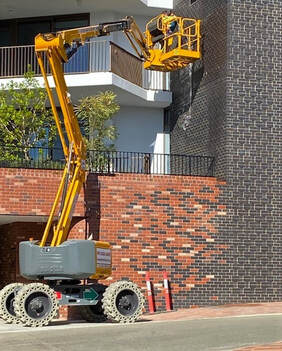

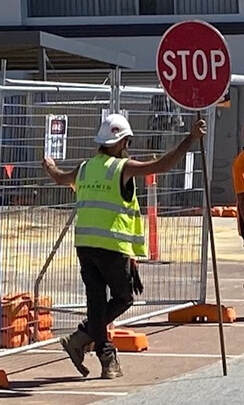
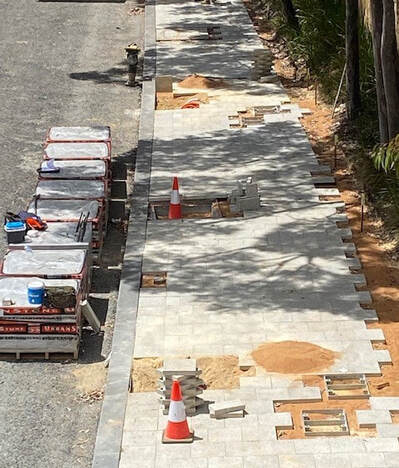




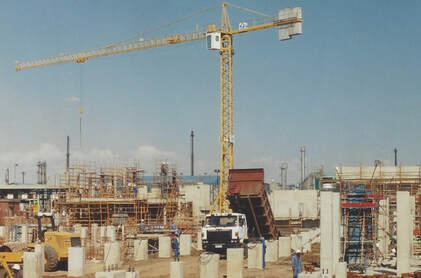


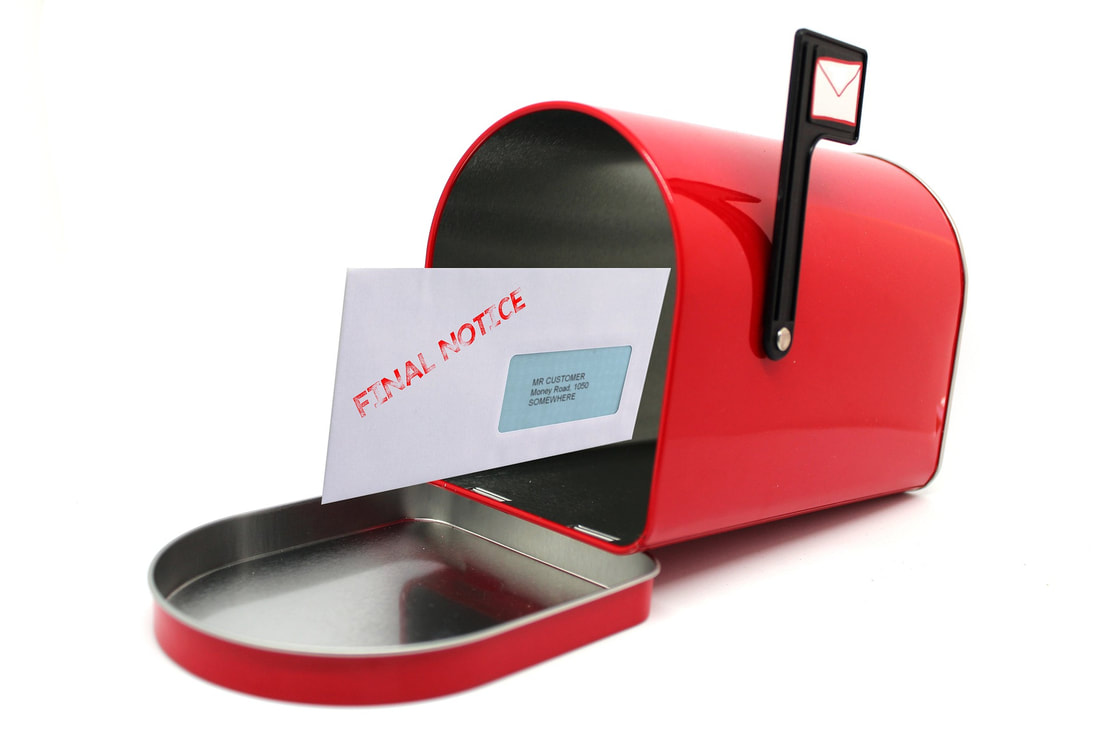

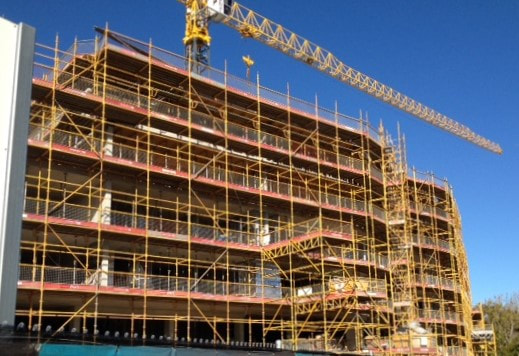
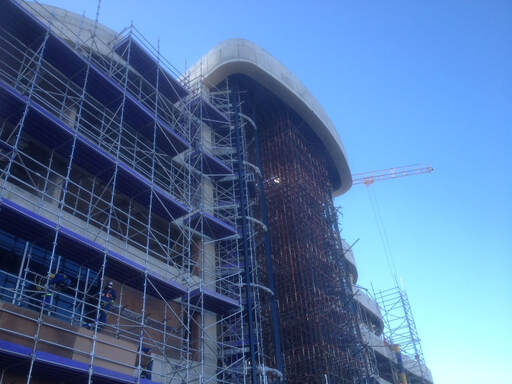


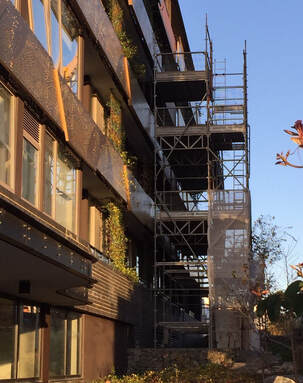

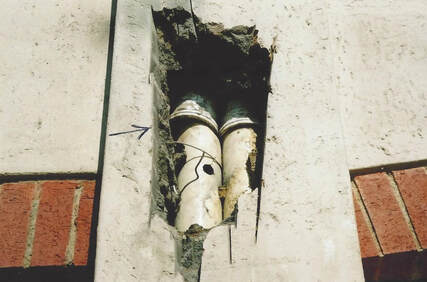
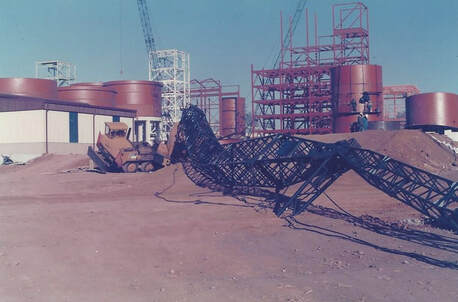
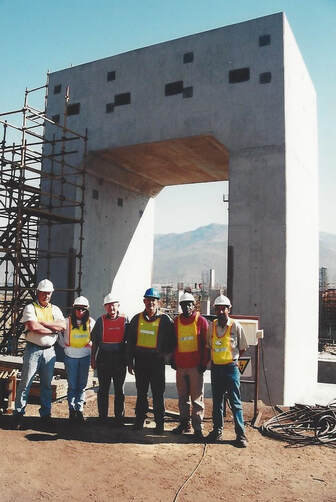
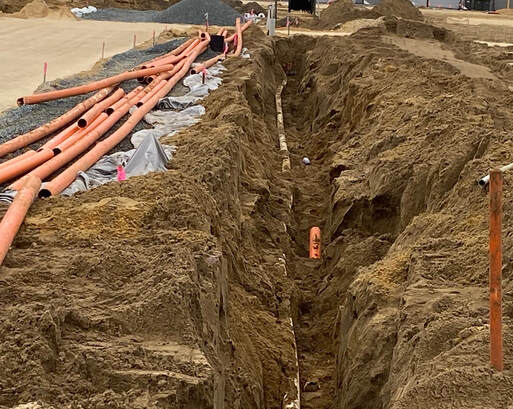

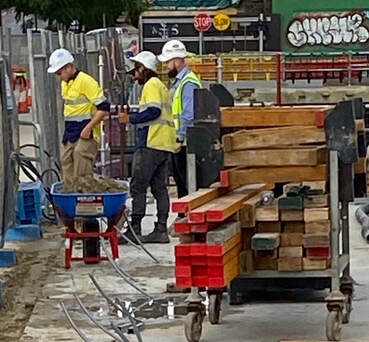


 RSS Feed
RSS Feed




